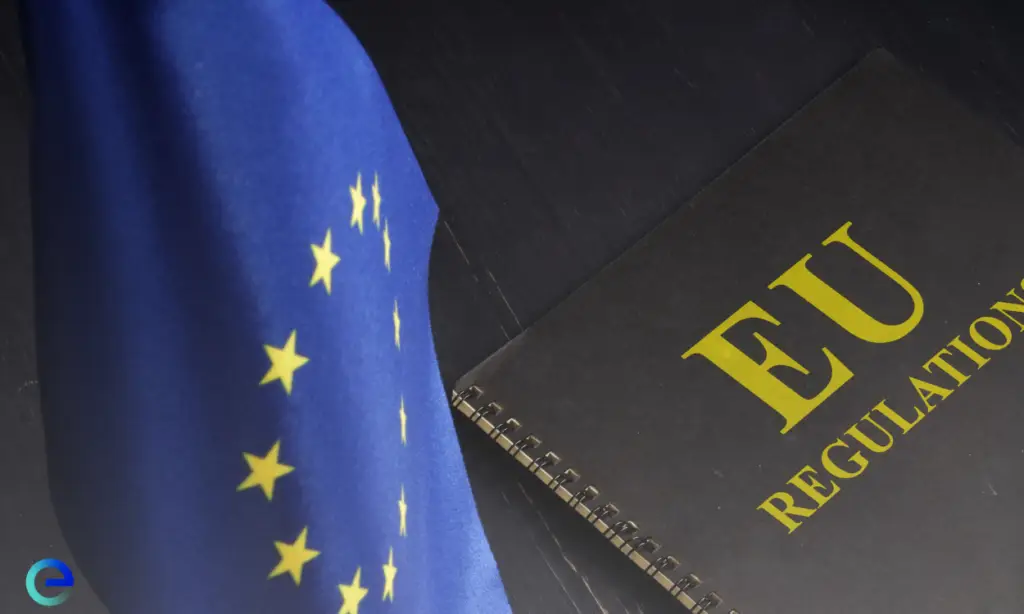
While sustainability and corporate accountability are still under the spotlight, the Corporate Sustainability Reporting Directive (CSRD) represents a shift in the landscape of sustainability reporting for EU companies. This transformative policy underscores the importance of transparent, reliable, and comprehensive disclosure of both financial and non-financial information, aiming to enhance the quality of data and stakeholder engagement in environmental, social, and corporate governance (ESG) matters. By mandating a higher standard of sustainability reporting practices, the CSRD sets a new benchmark for reporting standards, highlighting the critical role of data quality and assurance in shaping the future of sustainable business practices.
As professionals delve into the essence of CSRD and its intended purpose, we outline for you the key changes introduced and the broader impact they will have on EU companies. We focus on the strategic preparations businesses need to make to comply with this regulatory evolution, emphasizing the shift towards more integrated financial and non-financial disclosures. Through a comprehensive overview of the CSRD’s requirements and its effects on sustainability reporting, this article aims to provide a condensed roadmap for companies navigating this new regulatory terrain, offering insights into the enhancement of reporting standards and practices in alignment with the overarching goals of transparency and accountability in corporate sustainability efforts.
The Corporate Sustainability Reporting Directive (CSRD) is a significant regulatory development aimed at enhancing the transparency and consistency of sustainability reporting across EU companies. Its primary purpose is to address the gaps in the previous directives, particularly in the areas of environmental, social, and governance (ESG) disclosures. The CSRD mandates a more comprehensive framework that requires companies not only to report on their financial performance but also on their impact on society, the environment, and their own governance.
Prior to the CSRD, the sustainability reporting landscape in the European Union was characterized by diverse practices and standards, leading to inconsistency in the quality and reliability of the information disclosed. Most companies reported sustainability information voluntarily, and those reports varied significantly in terms of detail and scope. This inconsistency made it difficult for investors, consumers, and other stakeholders to effectively compare companies and make informed decisions based on sustainability criteria.
The CSRD enters the reporting realm as a major differentiator, one that standardizes these practices by introducing more stringent reporting requirements and by extending the scope to include all large companies and all companies listed on regulated markets, except for listed micro-enterprises. This directive ensures that sustainability reports provide a true and fair view of the company’s position and performance, thus enhancing the reliability of data for stakeholders engaging in or assessing sustainable investments.
The Corporate Sustainability Reporting Directive (CSRD) significantly expands the reporting requirements to include not only all large companies but also listed SMEs and certain non-EU entities operating within the EU market. Estimates suggest that this change will impact over 50,000 companies, up from the 11,700 previously covered by the Non-Financial Reporting Directive (NFRD). Companies will now be required to disclose information on social and environmental issues’ risks and opportunities, as well as the impacts of their activities on people and the environment.
The implementation of the CSRD will be phased in over several years. The first companies will need to comply with the new standards starting in the financial year 2024, with their reports due in 2025 . This timeline allows companies adequate time to adjust to the new reporting requirements. Additionally, the directive includes provisions for further developments, such as the adoption of sector-specific standards by 2028, ensuring ongoing refinement and relevance of the reporting standards.
The Corporate Sustainability Reporting Directive (CSRD) mandates that EU companies, including large corporations and listed SMEs, disclose comprehensive information on their environmental and societal impacts as well as external sustainability factors influencing their operations. This shift from “non-financial” to “sustainability” disclosures places financial and sustainability reporting on equal footing, significantly broadening the scope of reporting to encompass both financial and ESG impacts.
Under the CSRD, companies are required to adhere to European Sustainability Reporting Standards (ESRS), which are being developed to ensure detailed and uniform reporting across sectors. These standards necessitate a double materiality assessment, where companies evaluate both the impact of their operations on sustainability and how sustainability issues affect their financial performance. Initial compliance with these standards is based on limited assurance, moving towards a more rigorous reasonable assurance framework by October 2028 .
Member States are empowered under the CSRD to enforce penalties for non-compliance that are “effective, proportionate, and dissuasive.” Penalties vary by country, with financial fines and other punitive measures such as exclusion from public procurement contracts or even imprisonment. For instance, in France, penalties can reach up to €375,000 and include criminal charges for obstructing audits or failing to appoint an accredited independent third party.
To ensure compliance with the Corporate Sustainability Reporting Directive (CSRD), companies must pre-identify their sustainability themes. This process involves the company’s governance structures, such as the board, which are responsible for identifying and structuring sustainability topics before conducting the materiality assessment. This preparation is crucial as it aligns with future ESG themes mandated by the CSRD.
Engaging stakeholders is a critical step in preparing for CSRD compliance. Stakeholders provide essential insights into the most significant impacts, risks, and opportunities for the organization. This engagement should not be purely consultative; instead, it should foster meaningful interactions that contribute to the business processes and sustainability management. Companies should utilize tools like stakeholder mapping to effectively involve relevant groups in the materiality assessment, ensuring that their input informs the sustainability reporting process.
The implementation of robust reporting systems is vital for CSRD compliance. Companies should start by conducting a comprehensive greenhouse gas (GHG) assessment as early as 2023 to structure their data collection processes. This initial step will facilitate more complex tasks in the following years, such as defining action plans and assessing risks. Additionally, adopting digital solutions can optimize the management of data across the organization, supporting compliance with the CSRD and EU Taxonomy.
The unveiling of the Corporate Sustainability Reporting Directive (CSRD) marks a transformative era for EU companies, marking a fundamental change towards enhanced transparency and accountability in sustainability reporting. The CSRD mandates not only a broadening of the reporting scope but also a significant elevation in the standard of sustainability disclosures, asking companies to present a more holistic view of their operations.
This shift reflects a deeper understanding of the intrinsic link between sustainable business practices and long-term corporate success, emphasizing the importance of integrating financial and non-financial performance indicators. As a considerably growing number of companies prepare to navigate these new regulatory landscapes, the focus on stringent compliance underscores the directive’s objective to establish sustainability as the prevailing condition, demonstrating a clear commitment to environmental stewardship, social responsibility, and ethical governance.
In navigating this complex transition, crafting suitable ESG reporting emerges as a momentous challenge, necessitating a nuanced approach to understanding and applying the broad array of ESG metrics tailored to specific industry contexts. At EcoSkills, we provide expert guidance to ensure your company’s ESG reporting aligns with CSRD regulations, embracing intricate frameworks such as the EU Taxonomy and the Task Force on Climate-Related Financial Disclosures (TCFD).
As we step into this era of heightened corporate sustainability accountability, the implications for future business practices and their societal and environmental impact are profound. The CSRD not only redefines how companies report but also reshapes the very fabric of corporate responsibility, setting a precedent for a sustainable and transparent future that aligns with global sustainability goals.
